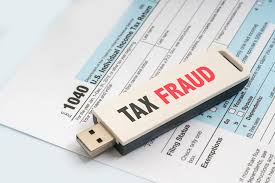Guide to Tax and Accounting Credentials
Tax professionals must have an IRS issued Preparer Tax Identification Number (PTIN) in order to legally prepare your tax return for compensation. Make certain your preparer has one and enters it on your return.
Enrolled Agents (EA) – Preparers with this credential are licensed by the IRS and specifically trained in federal tax planning, preparation, and representation. Enrolled agents hold the most expansive license IRS grants and must pass a suitability check, as well as a three-part exam. They complete 72 hours of continuing education every 3 years.
Public Accountants (CPA) – People with this credential are licensed by state boards of accountancy and have passed the CPA exam. They must meet education, experience, and good character requirements established by their boards of accountancy and comply with ethical requirements as well as complete continuing education to maintain an active license. CPAs can offer a range of services; some CPAs specialize in tax preparation and planning.
Attorneys – Attorneys are licensed by state courts or their designees, such as the state bar. Generally, requirements include completion of a degree in law, the passage of an ethics and bar exam and on-going continuing education. Attorneys can offer a range of services; some attorneys specialize in tax preparation and planning.
Enrolled agents, certified public accountants, and attorneys have unlimited representation rights before the IRS and may represent their clients on any matters including audits, payment/collection issues, and appeals.
IRS Annual Filing Season Program – Record of Completion Holders – The Annual Filing Season Program (AFSP) recognizes and encourages the voluntary efforts of unenrolled tax return preparers to increase their knowledge and improve their filing season competency through continuing education. AFSP – Record of Completion Holders must meet annual educational requirements set by the IRS and either take and pass an annual tax refresher course or have passed other IRS recognized state or national competency tests such as ACAT’s Accredited Business Accountant and Accredited Tax Preparer. (Read more on ACAT credentials below.)
Annual Filing Season Program participants are included in a public database of return preparers on the IRS website. Annual Filing Season Program participants have limited representation rights, meaning they can represent clients whose returns they prepared and signed, but only before revenue agents, customer service representatives, and similar IRS employees, including the Taxpayer Advocate Service. PTIN holders without an Annual Filing Season Program – Record of Completion or other professional credentials will only be permitted to prepare tax returns. For returns prepared and signed after December 31, 2015, they will not be allowed to represent clients before the IRS.

Not All Tax Preparers Are The Same
First, taxpayers should know that there is no national licensing requirement required for someone to call themselves a professional tax preparer and charge others to file their income taxes. People preparing another person’s income taxes for a fee are, however, required to have a PTIN, or Preparer Tax Identification Number. Some states have additional income tax preparer requirements for state income taxes, however. This leaves a lot of room for less than reputable individuals to set up shop.
Enrolled agents (“EAs”) and certified public accountants (“CPAs”) are both licensed and must pass testing and report continuing education hours. EAs earn their credential by passing a comprehensive exam administered by the IRS that covers individual, business, estate and trust taxation, and IRS representation. CPAs must pass a stringent four-part test, one part of which centers on taxation, while the other parts focus on financial accounting and reporting, financial auditing and business practices.
EAs and CPAs, along with attorneys, are the only professionals authorized to represent taxpayers before the IRS (such as during audits or for other communications). Few attorneys, however, prepare taxes.
The “Annual Filing Season Program” is new this year, and some preparers may advertise themselves as “AFSP.” This voluntary program got its start after IRS’ efforts to require that all preparers be tested and complete annual continuing education failed because a judge ruled that IRS did not have the authority to impose the requirement. This acronym, AFSP, is not a credential. It only shows that the preparer has passed a basic test and agreed to voluntarily complete some continuing education each year.
Whomever a taxpayer hires to do their taxes must have a Preparer Tax Identification Number (PTIN). It’s the law: Anyone who prepares or assists in preparing federal tax returns for compensation must have a valid 2015 PTIN before preparing returns. Checking for a PTIN is good place to start in making sure the preparer is on the level.
Seeing initials after a tax preparer’s name does not necessarily indicate that he or she is competent, but because the tax code changes so frequently, it can be reassuring to know that a preparer is required to complete continuing education. EAs, CPAs, commercial firms, and seasonal tax preparers are popular choices for tax preparation, however, only EAs, CPAs and attorneys can represent a taxpayer before the IRS if there’s a problem.

Promises of large returns
Fraudulent tax preparers will try to lure clients by promising huge refunds.
Those scam artists, who are highlighted year after year in the IRS’ “dirty dozen” list of most prominent tax scams, often target unsuspecting elderly and low-income taxpayers.
One sign that a tax preparer will inflate your return: They are getting paid based on a percentage of the refund.
That would be an automatic stop sign for me an enrolled agent and financial. It’s in their best interest to get you a larger refund whether it’s real or not. Those so-called tax professionals will often beef up your returns by attempting to cheat the system.
That could include using money paid for your commute to work or your business clothes as a deduction. They’re not deductions” for most individuals
I’ve seen people who put down 16,000 miles driving to work as an unreimbursed employee expense on the tax return, and that’s just wrong. It is going to get the taxpayer in trouble upon audit.
Other traps can range from exaggerations regarding charitable contributions or medical expenses to outright lies regarding marital status or the number of children you have. If you have the guts and no ethics, there’s so many ways you can cheat on your tax return in the short run. But in the long run you could face steep IRS penalties, even if it was the tax preparer who made the errors.

Three Easy Steps to Verify Your Tax Preparer is Legal
What to know about California tax preparers and how to verify if they are legal
Knowing how to find the right tax preparer can be overwhelming. Most of us assume that if the tax preparer has a business office or an accounting degree, the tax preparer is legal, right?
Not necessarily.
A degree in accounting, for example, does not automatically mean the tax preparer is legal. California law is very strict about who can prepare tax returns professionally. Below are three easy steps to confirm if the tax preparer is legal.
Step One— Does the tax preparer have a legal designation?
California law requires anyone who prepares tax returns for a fee to be either an attorney, certified public accountant (CPA), IRS enrolled agent (EA), or registered tax preparer with the California Tax Education Council (CTEC).
Anyone caught preparing tax returns for a fee without one of those four designations is breaking state law and may face penalties up to $5,000 from the Franchise Tax Board.
Step Two— Does the tax preparer have a clean history?
So the tax preparer claims he/she has a legal designation? Good. Now it is up to you to verify it. To check the status of…
- Attorneys, California State Bar
- Visit www.calbar.ca.gov
- Certified Public Accountants (CPAs), California Board of Accountancy
- Visit www.dca.ca.gov/cba
- CTEC Registered Tax Preparers (CRTPs), California Tax Education Council
- Visit www.ctec.org
- Enrolled Agents (EAs), California Society of Enrolled Agents
- Visit www.csea.org or email the IRS at [email protected].
Step Three— Does the tax preparer have a PTIN?
As of 2011, the IRS is requiring all paid tax preparers to register for Preparer Tax Identification Number (PTIN). Tax preparers are required to include their PTIN on each federal tax return they sign. If the tax preparer does not have a PTIN, walk away.
BEWARE IF YOUR TAX PREPARER…
- Signs or stamps your tax return “self prepared” instead of signing their name. The law REQUIRES paid tax preparers to sign your tax return by first and last name. No exceptions. Always verify they signed the “TAX PREPARER SIGNATURE” line on your state and federal tax returns.
- Signs under a business name. Again, their individual name is required by law.
- Sticks a business label on your tax return instead of signing their name. Although it may appear like they “signed” it, the copy filed with the government never includes the label. Again, no name. No signature. No proof of existence.
- Claims they “forgot” to sign your tax return or “promises” to sign it later.